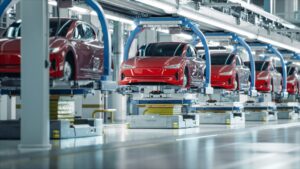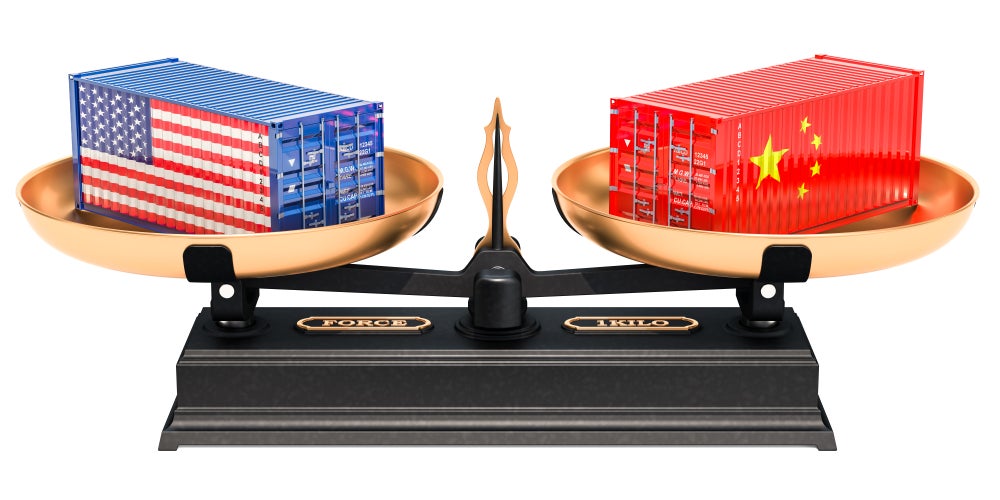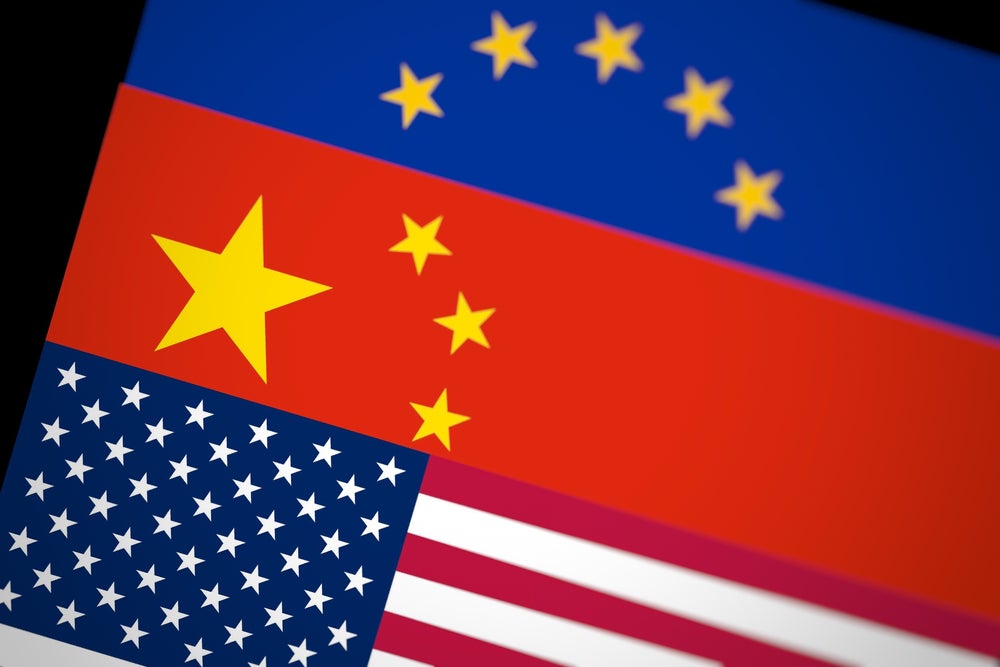On May 14, the Biden Administration announced increased tariffs on electric vehicles and other products imported from China, a move prompted by the findings of the four-year statutory review of the Section 301 tariffs first imposed by the Trump Administration.
On May 23, WITA and the Asia Society Policy Institute hosted an event to look at the new 100% tariff on Chinese Electrical Vehicles (EVs), and what that may mean for the U.S. and global EV manufacturing and markets.
Featured Speakers:
John Bozzella, President and CEO, Alliance for Automotive Innovation
Wendy Cutler, Vice President and Managing Director, Asia Society Policy Institute (ASPI) Washington, DC Office; former Acting Deputy United States Trade Representative
Michael Dunne, CEO, Dunne Insights LLC; author of the upcoming book: The Great Car Takeover: China’s Master Plan to Dominate Electric Car Markets Worldwide
Everett Eissenstat, Partner, Public Policy Practice Group, Squire Patton Boggs; former Deputy Assistant to the President for International Economic Affairs and Deputy Director of the National Economic Council, The White House
Hosuk Lee-Makiyama, Director of European Centre for International Political Economy (ECIPE)
Moderator: Jordan Schneider, Founder, ChinaTalk Podcast and Newsletter; Adjunct Fellow, Technology and National Security Program, Center for a New American Security
|
05/23/2024 | Washington International Trade Association, in partnership with the Asia Society Policy Institute |
|
It is hard to exaggerate the significance of President Joe Biden’s May 14 announcement of tariff increases on a range of imports from China. The move opens a new front in the Biden administration’s China de-risking strategy. It also puts into sharp relief the challenging trade-offs involved in the growing policy arena of economic security.
In the May 14 announcement, President Biden directed U.S. Trade Representative Katherine Tai to impose a set of staged tariff increases on about $18 billion worth of imports from China in an array of “strategic sectors”: steel and aluminum, semiconductors, electric vehicles (EVs), batteries, critical minerals, solar cells, ship-to-shore cranes, and medical products. The decision was based on the mandated four-year review of the tariffs imposed by former President Donald Trump in 2018 under Section 301 of the Trade Act of 1974.
The White House said the tariff increases were designed “to protect American workers and American companies from China’s unfair trade practices,” including forced technology transfers and theft of intellectual property. It also cited China’s “growing overcapacity and export surges that threaten to significantly harm American workers, businesses, and communities.” The products subject to the increased tariffs were “carefully targeted at strategic sectors—the same sectors where the United States is making historic investments under President Biden.”
The May 14 action marked a departure for the Biden administration. Its previous efforts to reduce risks and vulnerabilities in the U.S. economic relationship with China had been focused on the export side of the ledger, primarily denying Beijing access to sensitive U.S. technologies. The new measures target the import side, restricting China’s access to the U.S. market. Although Biden surprised many analysts after he entered office by leaving former President Trump’s earlier duties in place, tariffs had not been the favored arrow in the de-risking quiver of the current administration until now.
Few would argue with the diagnosis of the underlying problem that the Biden administration is trying to remedy. For at least two decades, China has tolerated or encouraged intellectual property theft and forced technology transfers from the United States and other advanced economies. There is a clear line from those practices to China’s development of competitive technology products such as telecommunications hardware and electric vehicles. Beijing’s massive industrial subsidies have also been well documented and have contributed to overcapacity in a number of key sectors. With domestic demand in China weak, overcapacity there will inevitably be offloaded onto world markets, creating the risk of a “second China shock.” One worrisome harbinger has been the surge of Chinese car exports over the past few years, from around one million vehicles in 2020 to nearly five million in 2023.
|
Following is an excerpt from an analysis by Uri Dadush, published by Bruegel.
The decision on EVs and its timing are strictly political and reflect the extraordinary power of the United Auto Workers union in swing states in the run-up to the US presidential election. The decision is nevertheless a surprise in the light of recent efforts at China-US rapprochement, including exchanges at senior military level, and talks on AI and climate change. China will be affronted and many China-dependent US firms, which had hoped for tariff reductions, will be disappointed. The decision is, however, consistent with US Trade Representative Katherine Tai’s “Worker Centric” trade policy which claims to place workers’ interests ahead of those of firms.
Global impact
The immediate economic impact of the tariffs will be minimal at the macro level, whether on quantities, prices, or exchange rates; $18 billion is tiny relative to the size of the two economies, and even the $500 billion that China exported to the US in 2023. Even so, they will hurt some Chinese companies and US importers. The effect on US consumers and prices will be minimal and take the form of lost future opportunities rather than immediate cost, especially in relation to EVs.
China’s retaliation (it always retaliates) will be proportionate and limited. If the past is a guide, retaliation will affect mainly some US agricultural exports, which can be sourced easily elsewhere, and US exporters will be compensated for their losses in China. But even if the Chinese government does not retaliate against US car exports and investments in China (which it continues to court), the Chinese consumer is unlikely to respond well to America’s extreme measure on EVs when he or she chooses the next car to buy.
Perhaps more worrying is the further escalation of tensions with China that the tariffs represent – a dangerous trend with many repercussions. It may undermine any Chinese willingness to play a moderating influence on the war in Ukraine. The tariffs also quash any notion that the US intends to abide by World Trade Organisation rules. These two considerations, by themselves, increase policy uncertainty globally and are bound to have a dampening effect on international trade and investment.
|
WITA – We put the community in trade community.
Information about upcoming WITA and trade community events
TRADE COMMUNITY EVENTS CALENDAR





